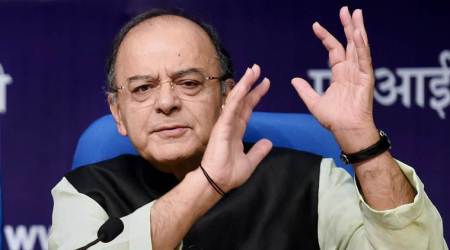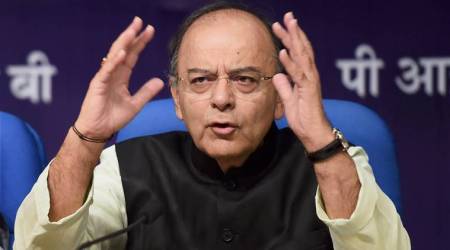 The Parliament, in the Budget Session, also accepted the omission of the first proviso in Section 182 of the Companies Act 2013, which consequently removed limit on corporate donations to political parties.
The Parliament, in the Budget Session, also accepted the omission of the first proviso in Section 182 of the Companies Act 2013, which consequently removed limit on corporate donations to political parties.
The Election Commission (EC) has written to the Law Ministry objecting to the recent amendments in the Representation of the People (RP) Act and the Companies Act, which exempt political parties from disclosing donations received through electoral bonds and remove cap on corporate contribution to political parties, respectively.
In a letter written to Law Secretary Suresh Chandra last week, the Commission has asked the government to “reconsider” and “modify” the above amendments as they discourage transparency in political donation.The poll panel is also learnt to be upset about the government bringing amendments to the RP Act in Parliament through a Money Bill without consulting the EC. The letter, however, makes no mention of that.
Under Section 29 (c) of the RP Act, political parties have to file contribution reports complete with details of donors for any contribution above Rs 20,000. This was amended in the Budget session of Parliament this year to introduce a new proviso and explanation that exempt political parties from disclosing donations received from electoral bonds, even if it is above the prescribed limit.
Asking the government to withdraw the new proviso, the EC wrote, “In a situation where the contribution received through electoral bonds are not reported, on perusal of the contribution report of political parties, it cannot be ascertained whether the political party has taken any donation in violation of provision under Section 29(b) of the RP Act which prohibits the political parties from taking donations from government companies and foreign sources.”
The Finance Minister had announced the introduction of electoral bonds in his Budget speech this year. These bonds will be issued by a notified bank for specified denominations, which a donor can buy and gift to a registered political party. The identity of the donor will not be known to the receiver.
The Parliament, in the Budget Session, also accepted the omission of the first proviso in Section 182 of the Companies Act 2013, which consequently removed limit on corporate donations to political parties. Earlier, a company could contribute not more than 7.5 per cent of its net profit over last three years.
On this change, the EC’s letter states, “This opens up the possibility of shell companies being set up for the sole purpose of making donations to political parties with no business of consequence…
“The Commission is of the view that the earlier provisions ensured that only profitable companies with proven track record could provide donations to political parties and accordingly it is recommended that the provision may be re-introduced.”
Lastly, the EC has called for strengthening of Section 182(3) of the Companies Act, which has been diluted to exempt companies from disclosing party-wise details of their political donations in their profit and loss statement. Under the changed provision, companies only have provide the total amount contributed. The Commission wants the government to reinstate the obligation to disclose party-wise details.
The poll panel first articulated its reservations regarding the above changes at a press conference held in Chandigarh on April 29 where Chief Election Commissioner Nasim Zaidi told reporters that scrapping the limit on corporate contribution to political parties, was “basically hitting” transparency in funding.
This month, in its written response to the Standing Committee on Personnel, Public Grievances, Law and Justice, headed by Anand Sharma (Congress), EC described the move to issue electoral bonds a “retrograde step” as it would “compromise transparency” in political funding.
EC’s letter to the Law Secretary last week is its first official communication with the government on the amendments.

